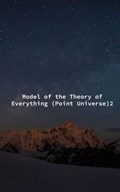We begin by describing the first moments of the universe's existence, where particles smaller than the primordial were lying in the vacuum for infinite periods, preparing for the explosions and cosmic storms that formed the beginning of the universe, the contrast and diversity, not limited to the visible objects but extends to its nanoscale components, where particles interact and interact on small scales that cannot be easily visualized. The study is based on phenomena such as the Casimir effect, the double-slit experiment, and other phenomena that are difficult to explain using the traditional four-dimensional model.
The study uses the Schrödinger-Hamilton equation to study the behavior of particles in extra dimensions, and attempts to develop new mathematical models to describe the motion of particles in six-dimensional space.

